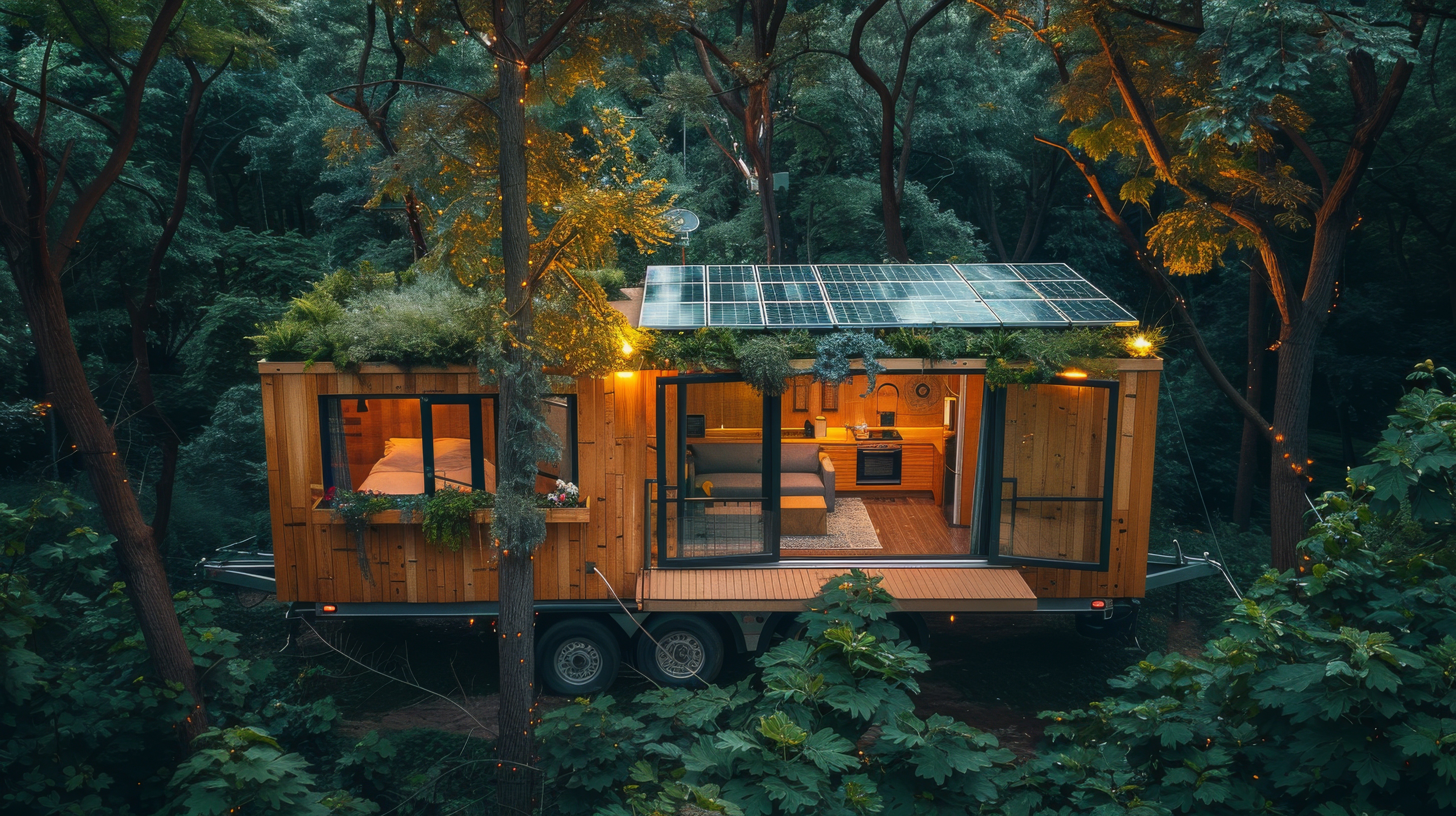Can You Add Solar Panels to a Manufactured Home and Still Qualify for Financing?
October 28, 2024

In 2024, as renewable energy gains popularity, many homeowners are thinking about using solar power as a way to reduce their energy bills and help the environment. For those who live in manufactured homes, you may wonder whether you can add solar panels while still qualifying for financing. The good news is that it is possible, but there are a few things to consider before taking the leap into solar energy.
The experts at Triad are here to explain the specifics of adding solar panels to a manufactured home, how it might affect your financing options, and the benefits of incorporating solar power.
Can You Install Solar Panels on a Manufactured Home?
Yes, you can install solar panels on a manufactured home, but the process involves additional steps compared to more traditional site-built homes. One major difference is the structural integrity of the manufactured home. Since solar panels can add weight to the roof, your home has to be able to support the extra load.
Homes built after 1976, when the HUD Code for manufactured homes was established, are more likely to meet these structural standards for solar panel installation. These homes are built to comply with federal building standards that focus on safety and durability, making it easier to add features like solar power. If your home was built before 1976, you might need to reinforce the roof before installation, which could increase costs.
How Solar Panels Impact Your Financing
Financing a manufactured home with solar panels is certainly possible, but it depends on the type of loan you are pursuing and whether the solar panels are included in the initial financing or added later. Here's how different financing options might be impacted:
1. FHA Loans
The Federal Housing Administration (FHA) offers loan programs for manufactured homes, but they come with specific guidelines. To qualify for an FHA loan, your home has to be on a permanent foundation and meet all HUD safety standards. Adding solar panels usually won’t disqualify you from this, as long as the manufactured home meets HUD conditions and the solar installation complies with local building codes. However, you might need an appraisal to get official approval that the solar panels add value to the home.
2. Conventional Loans
Conventional loans may offer more flexibility when it comes to adding solar panels. If you’re buying a manufactured home and financing it through a traditional mortgage, including solar panels in the loan package is generally possible. However, the solar installation must be completed by a certified contractor and meet any lender requirements. If the solar panels are added after the home purchase, you may need to refinance or take out a separate loan for the installation.
3. Chattel Loans
Chattel loans, which are typically used for manufactured homes that aren’t on permanent foundations, can be a bit trickier when it comes to adding solar panels. These loans treat the home as personal property rather than real estate, and adding solar panels may not be as straightforward. If you're using a chattel loan, it's important to check with the lender to see if adding solar panels might affect your financing terms.
The Benefits of Solar Panels On Your Manufactured Home
While there might be steps to take before adding solar panels to a manufactured home, the benefits can be substantial. Solar power can reduce your energy bills, increase the value of your home, and help you qualify for more tax credits and rebates. In Florida, for example, homeowners may be eligible for state and federal incentives that can help offset the cost of the solar panel installation.
Having solar panels can also make your home more attractive to future buyers, especially as more people prioritize energy-efficient living.
Adding solar panels to a manufactured home is not only possible but can also be financially beneficial in the long run. Whether you’re looking into an FHA loan, a conventional mortgage, or another type of financing, it's important to make sure that your solar installation meets all structural and lender requirements.
